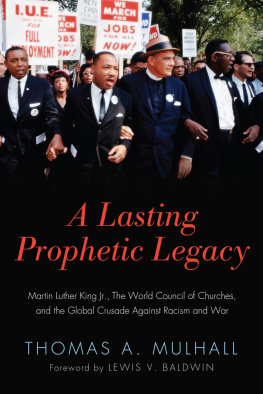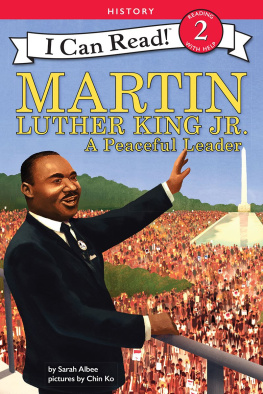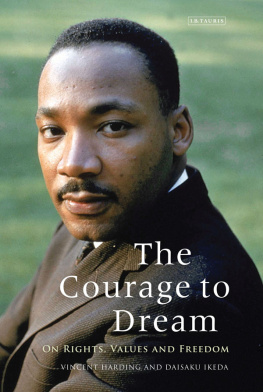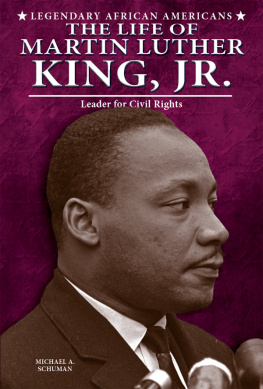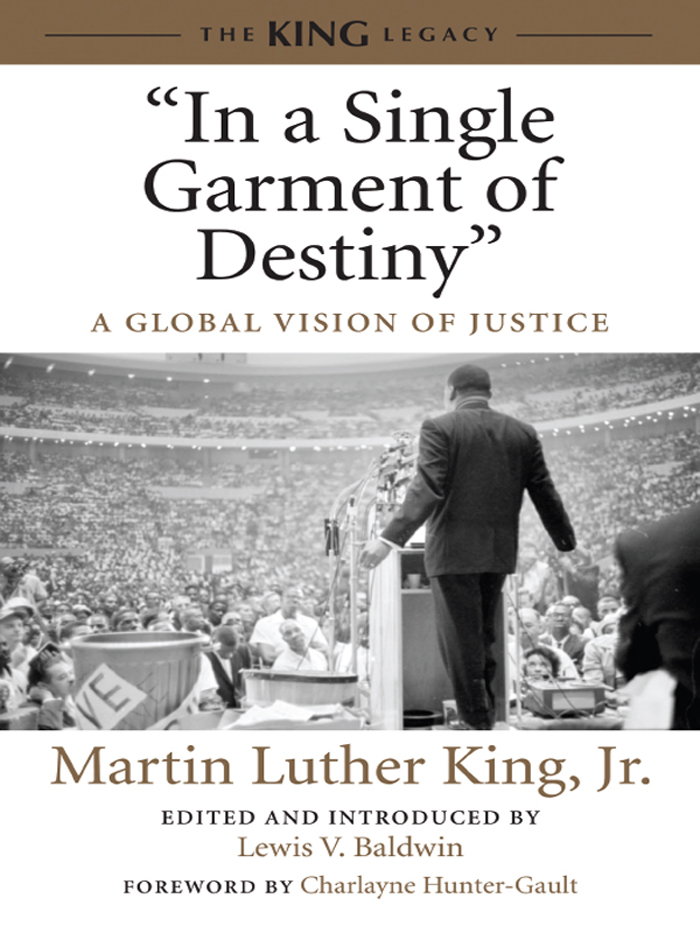OTHER BOOKS IN THE KING LEGACY SERIES
A Gift of Love
All Labor Has Dignity
Stride Toward Freedom:
The Montgomery Story
Thou, Dear God:
Prayers That Open Hearts and Spirits
The Trumpet of Conscience
Why We Cant Wait
IN A SINGLE GARMENT OF DESTINY
A Global Vision of Justice

MARTIN LUTHER KING, JR.
Edited and Introduced by Lewis V. Baldwin
Foreword by Charlayne Hunter-Gault
BEACON PRESS
BOSTON
As we grow and come to see the oneness of mankind and the geographical oneness of the world, made possible by mans scientific and technological ingenuity, more and more we are going to have to try to see our oneness in terms of brotherhood. This does not mean that everyone has to agree at every point. There can be a world government where diversity can exist and this would lessen many tensions that we face today, and it would also enable everybody to understand that we are clothed in a single garment of destiny, and whatever affects one nation directly in the world, indirectly affects all.
Martin Luther King, Jr., Redbook Magazine, November 5, 1964
CONTENTS
by CHARLAYNE HUNTER-GAULT
FOREWORD
CHARLAYNE HUNTER-GAULT
When I first met Dr. Martin Luther King in Atlanta in the early 1960s, during the heady days of the civil rights movement, recognition of each other was instantaneous. Though there was no blood connection, we were family. Not only were we joined in the beloved community he often talked aboutpeople fighting for freedom, justice, and equality in the Jim Crow Southbut we were also family in the sense that we shared the bond of values taught in our homes and communities, values that were timeless and transcendent, values that overcame the efforts of the white South to deny us our rights and that gave us a first-class sense of ourselves. So, when Dr. King spoke, it was as if I were hearing an older brother nurtured in the same values pulpit as I was.
Like Dr. King, I learned many verses from the Bible and was taught from it. One of the most enduring lessons came from Proverbs 22:6: Train up a child in the way he should go, and when he is old he will not depart from it. When those like me, who came of age in the civil rights movement, fought the lie of separate but equal, the vision and hope of Dr. King helped to keep us fighting. Dr. King exemplified this not only through his eloquent witness but also through his personal sacrifice, including joining in the student protests in my hometown of Atlanta that led to his arrest and to a sentence, based on a trumped-up charge, that was longer than that of any of the others arrested.
Clearly, my generation marched to its own drummer but we also followed the tune of Dr. King, a drum major for justice who, some six years before the birth of the civil rights movement and just as the U.S. Supreme Court was outlawing separate but equal in its 1954 Brown v. Board decision, spoke these visionary words at a National Baptist Convention:
Frequently there appears on the stage of history individuals who have the insight to look beyond the inadequacies of the old order and see the necessity for the new. These are the persons with a sort of divine discontent. They realize that the world as it is is far from the world that it ought to be. They never confuse the isness of an old order with the oughtness of a new order. And so in every age and every generation there are those persons who have envisioned some new order.
Thus, with his words, as well as his deeds, Dr. King helped train us up in the way we should go, empowering a generation to see the things it had not yet learned to see and to open its eyes to an even bigger prize than the elimination of Jim Crow. Thats why when we faced the terrifying presence of the Ku Klux Klan and their ilk, we would chant: King is our leader, [Donald] Hollowell is our lawyer, and we shall not be moved.
More than a decade after delivering that speech, Dr. King had matured along with his vision, which he articulated in a prophetic piece titled The World House.
However deeply American Negroes are caught in the struggle to be at last at home in our homeland of the United States, we cannot ignore the larger world house in which we are also dwellers. Equality with whites will not solve the problems of either whites or Negroes if it means equality in a world society stricken by poverty and in a universe doomed to extinction by war. All inhabitants of the globe are now neighbors.
He foresaw the need to focus on the issues affecting the beloved community both within and beyond our borders, issues we still confront: the legacy of slavery and segregation, of colonialism and apartheid, of injustice and inequality, of racism, and of the devastation of war and economic inequality.
Some of the children of the civil rights movement, such as Bob Moses, who toiled in the backwaters of the South registering voters until freedom rang there, heard the call and moved to Africa, which was struggling to overcome colonialism or the legacy of injustice fostered by that system. Others joined in the protests to end apartheid in South Africa. Thanks to this remarkable collection, we learn that Dr. King addressed this evil empire as early as 1957, when he joined with Eleanor Roosevelt and Bishop James Pike in a Declaration of Conscience to protest the inhumanity of apartheid. Such public denunciations clearly inspired others to follow, including young artists such as Gil Scott-Heron, who wrote the 1976 song Johannesburg (Tell me Brother, have you heard? Johannesburg... Glad to see resistance growin), and Randall Robinson and thousands of others, like a young Barack Obama, who joined in anti-apartheid protests of the 1980s, which ultimately saw Nelson Mandela and his people freed.
During that time, as I had reached one mountaintop, fulfilling my dream of becoming a journalist, my journey to the next mountaintop took me first to South Africa to help expose further the lingering effects of the wrongs of apartheid and later to other places throughout our global neighborhood where people of all colors, races, and creeds were yearning to breathe free. And though Dr. King was vilified for his vision at the time, children of the civil rights movement, such as Julian Bond, continued their journey to the next mountaintop by joining Dr. King in protesting Americas misguided involvement in the Vietnam War and embracing the human family, including those whose appearance but little else was different from their own.
And today, a luta continuathe struggle continuesin the countries on the African continent, some are taking baby steps toward democracy; others are not yet there in the countries of the Arab Spring, in the war-torn nations of Iraq, Afghanistan, and Pakistan. Women may hold up half the sky, as the saying goes, but they are still not recognized for it in all too many societies. And in even the most mature democracies, the economic justice championed by Dr. King is still proving elusive, creating ticking time bombs, especially among unemployed youth all over the worldwide neighborhood. None of these problems can be solved without a global vision and global action. And though the words we shall overcome someday were sung with earnest conviction by Dr. King and his followers, Dr. King also spoke of the fierce urgency of now.
Dr. Kings teachings from pulpits and podiums helped prepare me and many of my peers for our ongoing journey to the worldwide neighborhood. And though only select audiences heard him as far back as 1954, thanks to


